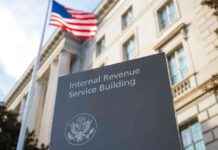In a recent report, JP Morgan has issued a stark warning about the potential risks of an ongoing trade war. The renowned financial institution predicts a 60% chance of a recession if the trade tensions persist, sending shockwaves through the global economy.
The threat of a recession looms large as trade negotiations between the United States and its key trading partners remain at an impasse. With tariffs escalating and retaliatory measures being implemented, the financial markets are experiencing heightened volatility and uncertainty.
Expert Insights on the Trade War
Leading economists and financial analysts have expressed deep concerns about the impact of the trade war on the global economy. Dr. Sarah Thompson, a senior economist at a prominent research institute, warns that the prolonged trade dispute could have far-reaching consequences for businesses and consumers alike.
“The uncertainty created by the trade war is weighing heavily on investor confidence and business sentiment,” Dr. Thompson explains. “If left unresolved, it could trigger a chain reaction of negative economic outcomes, potentially leading to a recession.”
Market Reactions and Investor Sentiment
The warning from JP Morgan has sent shockwaves through the financial markets, with stock prices plummeting and investor confidence taking a hit. The US stock market experienced a sharp decline following the announcement, reflecting growing concerns about the stability of the economy in the face of escalating trade tensions.
Investors are closely monitoring the developments in the trade war, with many adjusting their portfolios and investment strategies to mitigate potential risks. The uncertain outlook has fueled a sense of unease among market participants, who are bracing themselves for further turbulence in the coming months.
As the trade war continues to escalate, the stakes are higher than ever, with the potential for significant economic repercussions looming on the horizon. The decisions made in the coming weeks and months will have far-reaching implications for businesses, consumers, and the global economy as a whole. It remains to be seen whether a resolution can be reached before the situation reaches a critical tipping point.
The implications of a potential recession are vast and multifaceted, impacting industries across the board and reverberating through economies around the world. As policymakers, businesses, and consumers grapple with the uncertainty of the current trade environment, the need for a swift and equitable resolution has never been more pressing.
The warning from JP Morgan serves as a stark reminder of the fragility of the global economic landscape and the interconnected nature of modern markets. With the specter of a recession looming large, all eyes are on the key players involved in the trade negotiations, as the fate of the global economy hangs in the balance.
As we navigate these uncertain times, it is essential for stakeholders at all levels to remain vigilant, informed, and proactive in their approach to managing the risks posed by the ongoing trade war. By staying abreast of the latest developments, consulting with experts, and adapting to the evolving economic landscape, we can better position ourselves to weather the storm and emerge stronger on the other side.
































